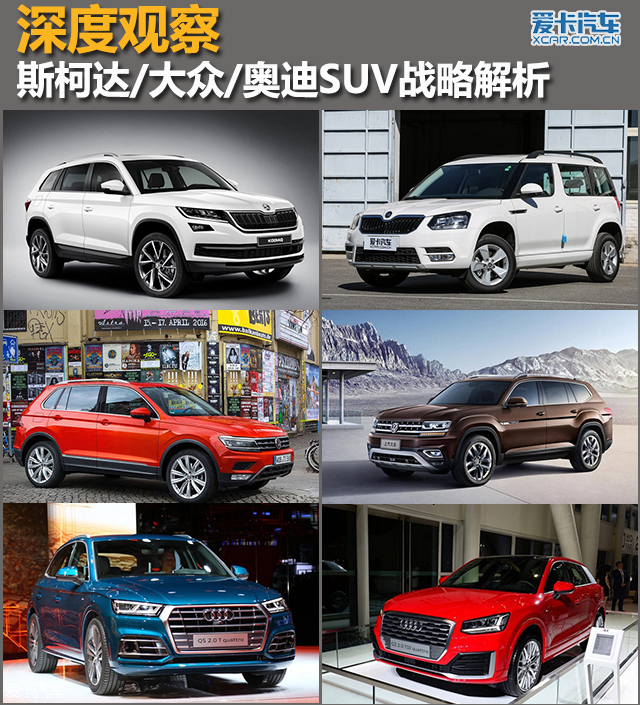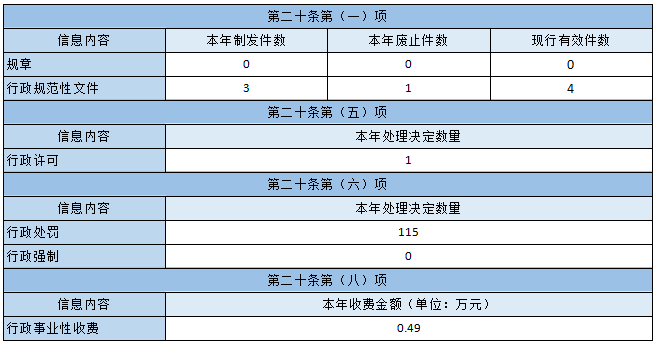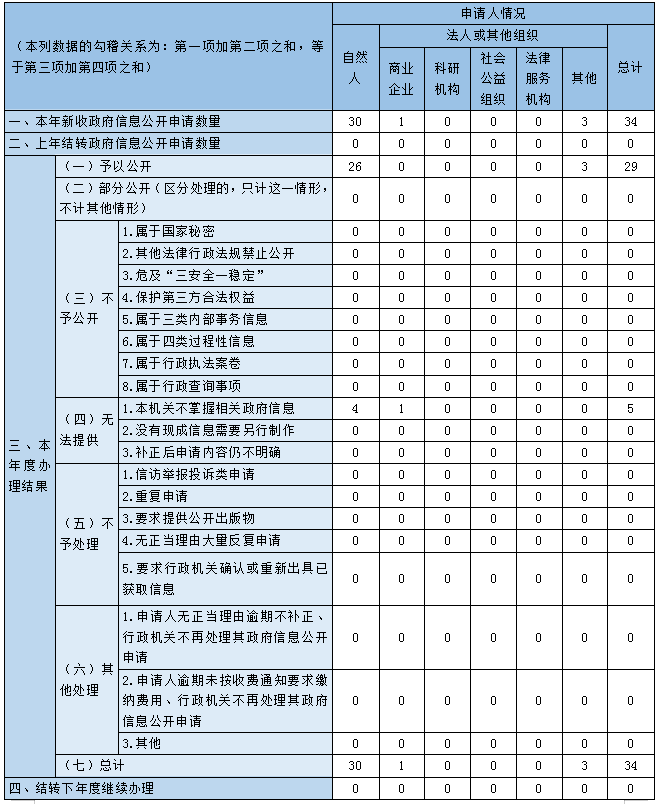In the first half of the year, successive epidemics in various places, restaurants or restaurants closed down, or closed down their meals, or restricted their flow, etc., caused the catering industry to suffer a huge impact.
According to the data of the National Bureau of Statistics, from January to June 2022, the national catering revenue was 2 trillion yuan, down 7.7% year-on-year, and the catering revenue of units above designated size was 487.9 billion yuan, down 7.8% year-on-year. Focusing on catering listed companies, the performance is even more bleak.
Fourteen companies lost 1.383 billion yuan, and only three made profits.
According to statistics of Yingshang. com, in the first half of 2022, the revenue of 14 listed catering enterprises was 27.7 billion yuan, down 14.7% year-on-year, and the total net profit was 1.383 billion yuan, compared with a profit of 300 million yuan in the same period last year. (Unit: RMB, the exchange rate for converting Hong Kong dollars into RMB is July 1, 2022: HK$ 1 =0.8554 Yuan)

In terms of revenue, only two of the 14 enterprises saw revenue growth, of which Guangzhou Restaurant (603043) increased by 15.54%, Helens Company increased by 0.64%, and the remaining 12 enterprises all declined.
In terms of net profit, only three companies made profits, including 99.9 yuan, 58 million yuan for Guangzhou Restaurant, 21 million yuan for Tongqing Building, and all the other 11 companies lost money, including 5 companies (Haidilao (required area: 900-1,200 square meters), Xiabu Xiabu, Quanjude (002186), Ajisen China and Helen).
Whether it is a sharp drop in revenue or net profit, there is no doubt that the epidemic is the "culprit". In the first half of the year, the epidemic broke out repeatedly all over the country, especially in the first-and second-tier commercial active cities, and many places banned or restricted dining, which caused the catering industry to suffer heavy losses. With the unsealing of Shanghai and the easing of epidemic situation in other cities, the national catering industry gradually recovered its popularity in May and June.
The bleak performance is the influence of "force majeure" under the epidemic prevention and control. If we put aside the performance, the tenacity and innovation of catering enterprises should be seen. They are leading the industry’s transformation. Here, through the semi-annual report of 14 enterprises in 2022, we have insight into the new trend of the catering industry.
Adhere to multi-brand strategy: new brands become the biggest "potential stocks"
Jiumaojiu is one of the few catering enterprises to maintain profitability. Its revenue dropped by 6.1% to 1.899 billion yuan, and its net profit dropped by 69.98% to 57.7 million yuan. Under the multi-brand strategy, the brands of Jiumaojiu have different performances. The scale of the main brand Jiumaojiu Store is shrinking, and the growth of Taier is tired, and the performance of new brands is outstanding. At the same time, in order to optimize the brand combination, two egg pancake brands were sold.
Affected by the epidemic, the revenue contribution of Jiumaojiu Restaurant and Taier Restaurant decreased by 17.9% and 7.4% respectively in the first half of the year. There are only 77 main brand Jiumaojiu restaurant stores, 14 fewer than the same period last year; The growth of Taier brand is full of fatigue, and the turnover rate in the first half of the year decreased from 3.7 times a day in the same period last year to 2.9 times.
It is worth noting that the new brand "Chongqing Hot Pot Factory" launched in 2019 has the most outstanding performance. In the first half of this year, its revenue increased by nearly 4.7 times year-on-year, from 17.5 million yuan in the same period in 2021 to 81.6 million yuan. Mainly in the past year, the brand added 8 stores (2 in the first half of the year); The turnover rate has also increased from 2.2 in the same period last year to 2.4 in the same period in 2022.

Chongqing Hot Pot Factory Store, Source: Junyi Wanbang Plaza
Jiumaojiu said that it will continue to follow the multi-brand and multi-concept strategy and continue to expand into more market segments. Enhance the brand image of the brand with high operating profit; Continue to develop Chongqing Hot Pot Factory and Lai Meili brand with great growth potential. With the help of multi-brands, we will further expand into more market segments and increase market share.
The latest brand matrix of Taixing Group is: Taixing, Minhua Ice Hall, Chamu, Asiatic Ginseng Chicken Rice, Reliable, Jinli, Daocheng Hotel, Dianbao, jiaozi Li, Qiongfang Ice Hall, Zanthoxylum bungeanum, TommyYummy and Bird World First Class. Among them, Zanthoxylum bungeanum, TommyYummy and Niaoshiyi are new brands launched in the first half of the year.
The revenue of the flagship brand "Taixing" was about HK$ 513.1 million, down 30.12% year-on-year, accounting for 42.1% of the Group’s total revenue, and it continued to be the largest revenue source of the Group. The brand income of Minhua Ice Hall was about HK$ 324.8 million, down 5.86% year-on-year; It is still the second largest source of income, accounting for 26.7% of the group’s total income; The revenue of the tea and wood brand targeting the youth market reached about HK$ 116.6 million, down 34.75% year-on-year. During the period, the brand image was reshaped, and two brand-new concept stores were officially unveiled in June.
The brand of Asian ginseng chicken rice is one of the new driving forces for Taixing’s growth (310328), with a revenue of about HK$ 79.2 million, a sharp increase of 38.0% year-on-year.

Yashen chicken rice store
Taixing Group clearly stated that "diversified business strategy" is the key to the group’s future development. In the second half of the year, it will open a brand restaurant of Xingji Seafood Hotel recommended by Mi Zhilian in Central. In the future, under the two-pronged approach of "new brand+core brand", the brand of Taixing Group will be more diversified.
Large-scale store adjustment: the "hot pot duo" closed and opened stores, accelerating the international layout.
Haidilao’s revenue in the first half of the year was 16.764 billion yuan, down 16.6% year-on-year, with a net loss of 267 million yuan, compared with a profit of 97 million yuan in the same period last year. In the past year, there were 291 closed stores and 129 newly opened stores, with a net decrease of 162 stores. In the first half of the year, 18 newly opened stores and 26 restaurants were closed due to the Woodpecker Project. By the end of the period, the total number of stores was 1435.
Haidilao said that "Woodpecker Plan" has achieved certain results, and the Group plans to launch the "Hard Bone" store plan at the right time. At present, the stores that are considering the possibility of reopening are some closed stores under the "Woodpecker Plan", and gradually select "Hard Bone" stores that meet the conditions for reopening.

Haidilao hotpot store
At the same time, Haidilao started to list its overseas business, and planned to separate Tehai shares for independent listing, and submitted a listing application to the Stock Exchange on July 13, 2022.
The income in the first half of the year was 2,156.4 million yuan, a year-on-year decrease of 29.2%; The loss increased from 46.9 million yuan in the first half of 2021 to 278.2 million yuan. In the first half of the year, 37 Xiabu Xiabu restaurants closed, and 6 restaurants opened. By the end of the period, 810 restaurants had been operated, a decrease of 267 compared with the same period last year.
Fifteen restaurants were opened in the first half of the year, and there are currently 198 restaurants, a net increase of 39 compared with the same period last year. The number of stores in third-tier cities and below and overseas markets has increased rapidly.

Gather together the number and distribution of restaurants
According to the Xiabu Group, with the improvement of the epidemic situation, the expansion plan will be accelerated in the second half of this year, and about 100 new stores are planned.
The establishment of the second headquarters of Xiabu Xiabu Group in Minhang District, Shanghai will accelerate the strategic plan of "expanding its business to East China and South China". By expanding its business to coastal cities and first-tier cities such as Shanghai, Shenzhen and Guangzhou in the Yangtze River Delta region and Greater Bay Area, it will lay out new first-tier cities and finally enter the northwest and southwest regions. At the same time, accelerate the international transformation, and the next step will be to March into Singapore, Malaysia and other places.
In addition, the first store of "Shaoshao", a new brand of "Roasted Meat+Wine+Tea", will be unveiled in Shanghai in late September.
Cross-border: Helen Company changed from "meal+wine" to "food stall+pub"
The revenue of Helen Company, the first share of tavern, in the first half of 2022 was 874 million yuan, up 0.6% year-on-year. The net loss was 304 million yuan, and the adjusted net loss was 99.9 million yuan; In the first half of the year, 133 pubs were opened and 69 pubs were closed, and the number of pubs reached 846 by the end of the period. The loss caused by the optimization and adjustment of pubs is as high as 100 million yuan.

? Distribution of Hailun Si store
According to another observation, in the semi-annual report of Helen Company, stores in second-and third-tier cities are expanding rapidly, and the sinking trend is quite obvious. It is worth noting that during July and August, Helens closed its stores on a large scale. In less than two months, 25 stores were closed, and the stores contracted for the first time. Whether this means that Helens has entered a new round of store adjustment is still unknown.
Between closing and opening stores, expansion is still the main theme of Helens. Helen said that in the future, while increasing the layout of a broader sinking market, we will reconstruct the development model and transform from a linear chain model to a platform company.
In the first half of the year, Helens opened a new model store of "food stall+bistro" in a low-key way. In May, it opened the first "Helens Yue" store in Lichuan City, Enshi, Hubei Province, where the elements of barbecue food stalls were introduced, and barbecue and crayfish dishes were added. The market response was good. Helen revealed that next, 20 small counties will be selected in Central China to carry out large-scale verification of "pub+food stall".

Hailunsi Yue
Time-honored brand: Force food, March into prefabricated food market
The performance of time-honored brands in the first half of the year was relatively stable. Among the only three profitable enterprises, time-honored brands accounted for two. In addition to the innovation of catering stores, time-honored brands have also become a strong support for food, prefabricated dishes and other businesses.
Guangzhou Restaurant has achieved double growth in revenue and net profit by virtue of the coordinated development strategy of "food+catering", and it is also the only company with double growth among catering listed companies.
In the first half of the year, the company’s revenue was 1.424 billion yuan, a year-on-year increase of 15.54%; The net profit attributable to shareholders of listed companies was 54 million yuan, up 45.33% year-on-year. Among them, the operating income of the food manufacturing industry was 976 million yuan, up 10.81% year-on-year, accounting for nearly 70% of the company’s total revenue. In terms of food sales, a system has been established, including dealer channels, e-commerce channels, offline chain stores, community operation channels and supermarkets.

Guangzhou Restaurant Series Precast Vegetable Products
Tongqing Building, the "first banquet", regards food business, catering business and hotel business as three independent businesses, which are operated by a special team. In the first half of the year, food sales revenue was 37.975 million yuan, an increase of 31.65 million yuan over the same period last year. In the case of other business sectors going down, the food business can be described as unique.
In the first half of the year, food sales channels were newly established in 38 supermarkets such as Su Guo and RT Mart in Nanjing, and sub-warehouses have been established in Nanjing. It is expected that the number of supermarkets will reach 100 by the end of this year. At the same time, the food business is exploring the operation of community stores and building a number of live broadcast rooms for online operation.
Tongqinglou has also entered the hot prefabricated vegetable market, with products ranging from breakfast pasta to self-heated rice and famous dishes by famous chefs, and focused on the packaging design of "chef dishes of Tongqinglou", and developed new products such as meatball series, sauerkraut series, braise in soy sauce series, fish series and shrimp series. Pasta products have been iterated into 13 SKUs.

The operating income of Xi ‘an catering industry in the first half of the year was 236 million yuan, a year-on-year decrease of 7.29%, of which the income of catering service industry dropped by 20.17%, while the food manufacturing industry increased by 53.88%. The food products of Xi ‘an Diet (000721) are mainly divided into six series, such as pastry baking, meat products, quick-frozen foods, convenience foods, semi-finished products and beverage brewing. During the period, through cultural excavation, pedigree innovation and cultural tourism integration, the industrial chain of the food industry was continuously extended, the product quality was improved, and at the same time, an online and offline dual-channel simultaneous expansion sales system was created.
Quanjude is also accelerating its entry into the prefabricated vegetable market. Make use of the advantages of its catering brands to create pre-cooked food products with different positioning. Quanjude brand is positioned as "refined roast duck products", Fengzeyuan brand is positioned as "cooked food products close to people’s livelihood" and Chuanlaoda brand is positioned as "classic Sichuan cuisine, mass consumption". At present, 30 categories of pre-made dishes and pre-packaged cooked food have gone to the market through online and offline.

Quanjude Prefabricated Vegetables Launch Site
"Live+takeaway", community operation, digital operation … become the consensus of catering enterprises.
In recent years, the epidemic has forced catering to accelerate online channel operation and take-away business, and the results have been very good. The general trend of big data further accelerates the intelligent operation and membership operation of catering enterprises.
From January to June this year, Quanjude achieved an 85% year-on-year increase in online take-out turnover. On the basis of organizing online marketing activities such as holidays and 24 solar terms, we launched brand joint marketing with Anmuxi during the Dragon Boat Festival, reaching 2.2 million users, and the turnover during the three-day Dragon Boat Festival holiday increased by 168% year-on-year. Quanjude mentioned in the key work in 2022 that it will vigorously carry out online platform business; Grasp the operation and maintenance of private domain, operate private domain traffic through online shopping malls, and carry out live delivery in Tik Tok.

Relying on the unified membership system, Guangzhou Restaurant promotes the upgrade of Smart Retail 2.0. By establishing the private domain layout of "WeChat official account+Enterprise WeChat+Applet+Community+Offline Store", it precipitates private domain traffic and helps to effectively integrate online and offline. Actively carry out digital marketing and creative marketing online, and leverage the popular short video live broadcast platform to increase the spread of "anchor cooperation+shop self-broadcast+amateur word of mouth".
Xi ‘an Catering has vigorously promoted the local life group buying business in Tik Tok, and released 283 group buying videos in Tik Tok in the first half of the year, with a cumulative exposure of 9.7 million. In the first half of the year, the group purchase and take-away income increased by 16% compared with the same period of last year.
Haidilao has set up a community operation center to provide delivery services, and at the same time actively operates online platforms, including self-operated Haidilao APP, small programs of "fishing for good goods" and third-party delivery platforms. In the first half of the year, the take-away business income reached 476 million yuan, an increase of 37.6% year-on-year.

China of Tanggong actively responded to the impact of the epidemic on offline stores by implementing WeChat community marketing, community group buying and live pre-sale promotion. In terms of online operation, since its launch in the second half of 2021, the number of electronic members has exceeded 780,000. Last year, it also successfully developed the business model of live broadcast of its own applet. Next, we will continue to expand online business, continue to optimize product structure, channels and marketing models, and increase the share of food trade.
In addition, catering enterprises continue to improve their product mix, supply chain, central kitchen, service experience and management ability, and take many measures to reduce costs and increase efficiency.
Based on the above measures, the gross profit margin of catering enterprises has been improved to some extent, among which the gross profit margin of Ajisen China has increased from 72.9% to 73.3%, and that of Shanghai Xiaonanguo has increased from 0.7% to 67.1%. The gross profit margin of Taixing increased by 0.5% to 72.3%, and that of Libaoge increased from about 57.4% in the same period last year to about 63.2% in the period.
tag
Despite the repeated impact of the epidemic, many companies expressed optimism and confidence in the future market in their financial reports. I believe that catering enterprises will surely usher in a new world under the full innovation and breakthrough.
Description of the source of the pictures in the article: Unless otherwise specified, they are all from brands or corporate officials.
(Editor: Ma Jinlu HF120)

















































